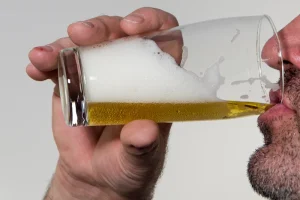
Setting clear goals gives you something to strive for and helps measure your progress. Whether you want to stay sober for a year or improve your mental health, having long-term goals provides direction and motivation. Whether you exercise regularly, eat nutritious meals, or practice mindfulness, establishing healthy routines helps create structure and consistency. By making positive relapse prevention skills daily choices, you reinforce your commitment to change and reduce the likelihood of emotional relapse. MBRP integrates mindfulness practices with a cognitive-behavioral approach to help individuals develop awareness of cravings without reacting spontaneously. This approach helps people determine and change negative thought patterns and actions contributing to relapse.
Ohio Mental Health Statistics
- A customized plan allows you to foresee challenges and equip yourself to tackle them effectively.
- By implementing these tactics, you can increase your chances of maintaining sobriety and achieving long-term recovery.
- With practice, these mindfulness techniques can become part of your everyday routine, allowing you to stay present and calm no matter your situation.
Lean on your support network for guidance and encouragement, and prioritize self-care to maintain your physical and emotional well-being. Remember that recovery is a lifelong journey, and it’s okay to ask for help when needed. Returning to drug or alcohol use after treatment for substance use disorder is a part of many people’s recovery journey. A person may make a plan to prevent this with support from a healthcare professional.

Care for yourself
It needs to be tailored to you and ready to implement at the moment you’re feeling cravings or triggers. This way, you’ll be ready to act more effectively to the relapse threat. Most people in recovery from alcohol or drug addiction will relapse at some point in their lives.
What role does nutrition play in recovery and relapse prevention?
- We specialize in aiding individuals through our dual diagnosis program, addressing both addiction and underlying mental health issues for lasting recovery.
- By proactively avoiding or managing these situations, individuals in recovery can minimise the risk of exposure to triggers and the subsequent relapse.
- Achieving long-term recovery from addiction is a challenging but rewarding endeavour.
- Remaining committed to your recovery journey is key to preventing relapses and upholding long-term sobriety.
- Some relapse prevention skills that can help you manage triggers include implementing relaxation techniques, engaging in mindfulness practices, or seeking assistance from your support network.
- These programs aim to foster accountability, camaraderie, and ongoing education about the dangers of substance use disorder.
- It’s crucial to have a plan in place for dealing with potential triggers, and to continually assess and adjust your plan as needed to stay on track toward long-term recovery.
Enter your phone number below to receive a free and confidential call from a treatment provider. If our guilt is intense, in the absence of a plan, we likely will relapse until our next effort to change. A cigarette ad attracts us, or someone in a group puts us down, or we strain ourselves by overdoing exercise.

Stay on top of latest health news from Harvard Medical School.
Online Learning Courses
- This component involves teaching practical skills essential for maintaining sobriety, such as coping strategies for managing cravings.
- You can learn about the best relapse-prevention treatment options for your needs.
- It’s important to remember that triggers can vary from person to person, so it’s essential to identify and address your own specific triggers as part of your relapse prevention plan.
- Developing healthy coping skills, engaging in self-care practices, and maintaining a strong support network are all essential components of building resilience.

Identifying Your Personal Triggers


Leave a Reply